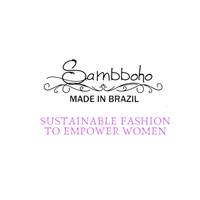How to Stay Calm When Your New Dog Destroys Your Home?

Bringing a new dog into your home is a joyful experience, but it doesn’t always go as smoothly as you might expect. One minute, you’re admiring how cute your new pup is, and the next, you’re dealing with the aftermath of a shredded couch or chewed-up shoes. While it’s easy to get frustrated in these moments, keeping your cool is essential for both your dog’s well-being and your own peace of mind.
We spoke to professional dog trainers to gather expert advice on how to stay calm and guide your dog toward better behavior when they inevitably destroy something in your home.
Why Do Dogs Destroy Things?
Understanding why your dog is destroying things can help you address the behavior more effectively. While it’s not always clear why they’ve chosen to chew on your furniture, here are some common reasons dogs might engage in destructive behavior:
Boredom: Dogs need mental and physical stimulation. Without enough playtime, exercise, or interactive toys, they may resort to destructive activities to entertain themselves.
Separation Anxiety: Dogs with separation anxiety can become destructive when left alone. Chewing or tearing up items may be their way of coping with the stress of being apart from you. Check out our article here about the topic.
Teething: Puppies, in particular, are prone to chewing as they go through the teething phase. It’s a natural way for them to relieve discomfort and explore their environment.
Instinct: Some dogs have a strong prey drive, which can lead them to tear things apart, especially breeds like Jack Russells, terriers, and dachshunds. This behavior mimics their instincts to chase and dismantle prey.
Attention-Seeking: If your dog learns that chewing on your things gets a reaction, they may repeat the behavior just to get your attention.
Stress or Frustration: Major changes in your dog’s routine, new environments, or frustration from not getting enough attention can also trigger destructive behavior.
How to React When Your Dog Destroys Something
While it may be tempting to react with anger, punishment isn’t an effective way to address destructive behavior. According to dog trainer Louie Scott, staying calm and using positive methods is key to resolving the issue.
Here’s what to do instead:
Redirect Their Focus: If you catch your dog in the act of chewing something inappropriate, stay calm and offer them a more acceptable option, such as a chew toy or designated area for digging. This helps them learn what’s appropriate.
Don’t Let Them Watch While You Clean: Trainer Louie Scott suggests that you remove your dog from the room while you clean up the mess. If your dog sees you handling the chewed-up item, they may interpret it as a form of play, reinforcing the unwanted behavior.
Avoid Scolding: While you may feel frustrated, scolding your dog can backfire. Not only does it fail to prevent future incidents, but it can also cause anxiety or fear in your dog. Instead, focus on redirecting their energy and reinforcing good behavior. If you want to understand how dogs sees us, check this article HERE.
How to Train Your Dog to Stop Destroying Things
Training a dog to stop chewing on things they shouldn’t can take time, but with patience, consistency, and the right approach, you can help them learn better habits. Here’s how:
Provide Appropriate Alternatives: Make sure your dog has plenty of chew toys, puzzle games, and mentally stimulating activities to keep them engaged. Rotate their toys regularly to keep their interest piqued.
Use Positive Reinforcement: When your dog chews on an appropriate item, praise them, give them treats, or offer playtime. Reinforcing good behavior helps them understand what’s expected.

Supervise and Manage: Until your dog learns what’s off-limits, supervision is important. Use a puppy-proofed room or crate to limit access to areas where they might cause damage. This helps prevent them from practicing unwanted behavior.
Get Enough Exercise: A well-exercised dog is less likely to engage in destructive behavior. Ensure your dog is getting plenty of physical activity, whether through walks, play, or games like fetch or tug-of-war. Puzzle toys and snuffle mats are also great for mental stimulation.
Teach Commands Like "Leave It": The "leave it" command can be helpful in preventing destructive chewing. With consistent practice, you can teach your dog to stop chewing on inappropriate items when you give the cue.
Be Consistent: Dogs need clear boundaries. Avoid giving them old shoes or household items to chew on, as this can confuse them. If they’re allowed to chew on old shoes, they might not understand why they can’t chew on your new ones.
By understanding why your dog may be destroying things, staying calm in the face of frustration, and implementing consistent training methods, you can help your pup develop better habits and create a happier home for everyone.


